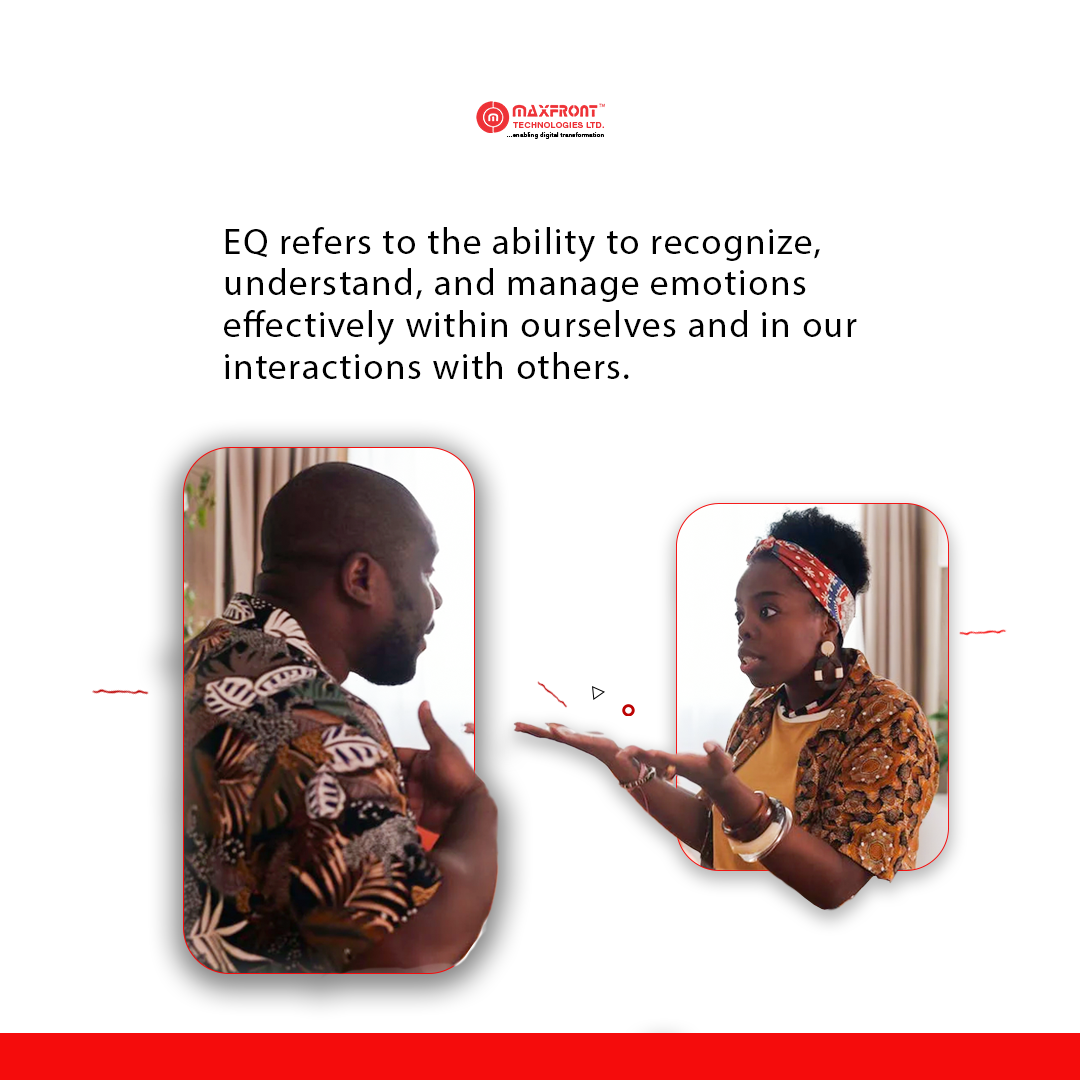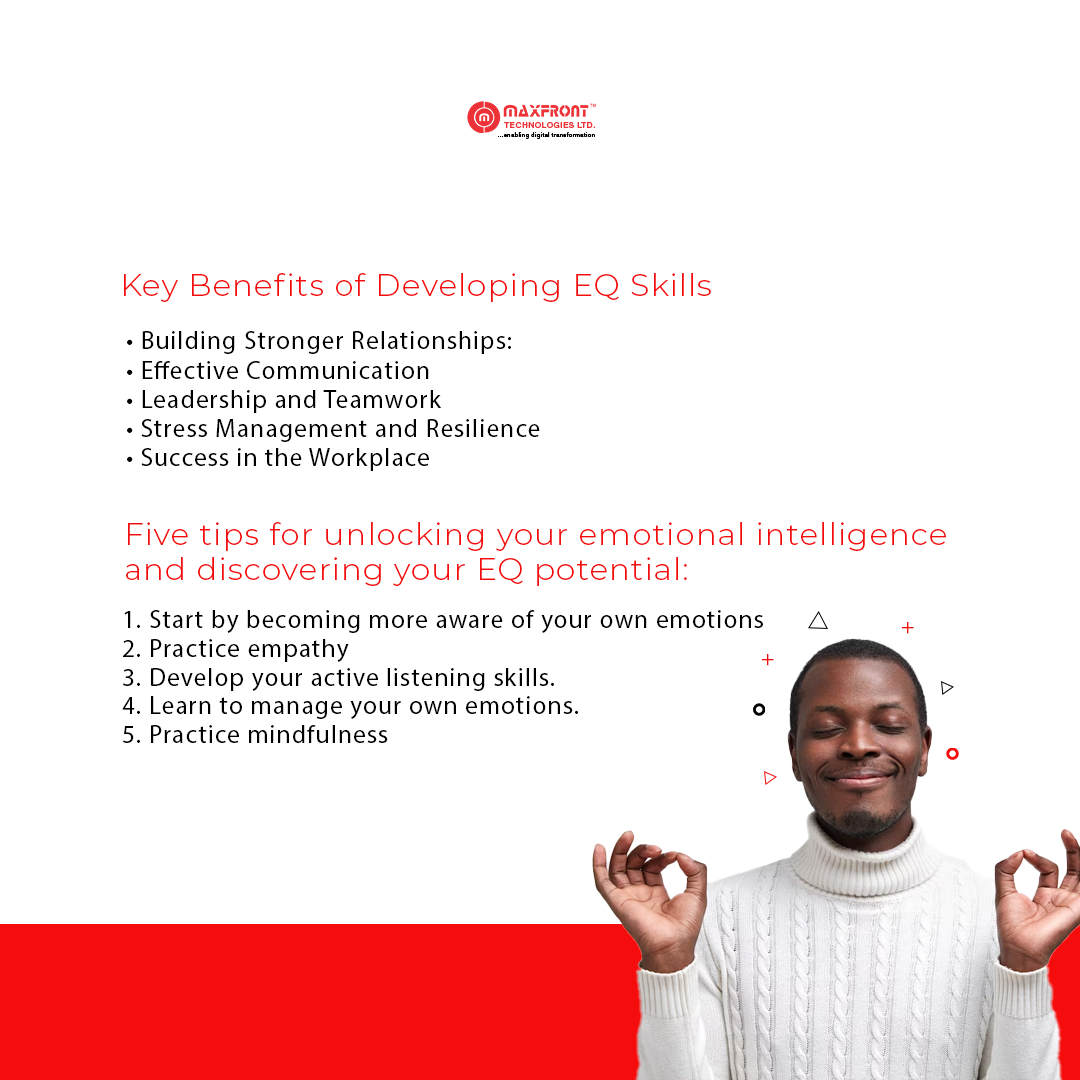 In today’s fast-paced and interconnected world, having high emotional intelligence, commonly known as EQ, is more important than ever. EQ refers to the ability to recognize, understand, and manage emotions effectively within ourselves and in our interactions with others. While traditional measures of intelligence, such as IQ, are undoubtedly valuable, EQ plays a significant role in personal and professional success. This article will explore the importance of developing EQ skills and how they can positively impact various aspects of your life.
In today’s fast-paced and interconnected world, having high emotional intelligence, commonly known as EQ, is more important than ever. EQ refers to the ability to recognize, understand, and manage emotions effectively within ourselves and in our interactions with others. While traditional measures of intelligence, such as IQ, are undoubtedly valuable, EQ plays a significant role in personal and professional success. This article will explore the importance of developing EQ skills and how they can positively impact various aspects of your life.
To begin, we will define emotional intelligence and its key components. Emotional intelligence encompasses a range of skills, including self-awareness, self-regulation, empathy, social skills, and motivation. We will explore these components and discuss their importance in various aspects of life, from personal relationships to professional settings.
Emotional intelligence, commonly called EQ (Emotional Quotient), has emerged as a crucial factor for personal and professional success. While IQ (Intelligence Quotient) measures cognitive abilities, EQ measures our ability to understand, manage, and navigate our emotions and those of others. Emotional intelligence can improve relationships and effective communication and enhance decision-making skills. This blog post will delve into emotional intelligence, explore its significance, and provide practical tips to help you unlock your EQ potential.

Key Benefits of Developing EQ Skills
- Building Stronger Relationships: One of the key benefits of developing EQ skills is the ability to build and maintain meaningful relationships. We can establish deeper connections and foster trust and respect by understanding and empathizing with others’ emotions. People with high EQ are skilled at active listening, offering support, and resolving conflicts amicably, all of which contribute to healthier and more fulfilling relationships in personal and professional spheres.
- Effective Communication: Effective communication is a cornerstone of success in any field. EQ skills enable individuals to communicate more clearly, empathetically, and assertively. By being attuned to others’ emotions and adapting our communication style accordingly, we can convey our thoughts and ideas more effectively, minimize misunderstandings, and promote collaboration and cooperation.
- Leadership and Teamwork: Leaders with high EQ have a remarkable ability to inspire and motivate others. They understand their team members’ emotional needs and motivations, fostering a positive work environment. Such leaders excel in conflict resolution, problem-solving, and decision-making, considering the emotions and perspectives of all stakeholders. Furthermore, EQ skills contribute to effective teamwork, fostering synergy and productivity within a group.
- Stress Management and Resilience: Developing EQ skills equips individuals with the tools to manage stress and build resilience. Understanding and regulating our emotions allows us to navigate challenging situations with composure and adaptability. High EQ enables us to identify and address the underlying causes of stress, practice self-care, and seek support when needed. This leads to improved overall well-being and mental health.
- Success in the Workplace: EQ is highly valued in the professional world. Studies have shown that individuals with higher EQ are more successful in their careers. They exhibit strong leadership qualities, excel in customer service, and demonstrate effective teamwork. Furthermore, they can adapt to changing environments, handle pressure, and make sound decisions, all highly sought-after skills in today’s dynamic work settings.
Here are five tips for unlocking your emotional intelligence and discovering your EQ potential:
- Start by becoming more aware of your own emotions
Take a moment to check in with yourself throughout the day and ask yourself how you’re feeling. This can help you better understand your emotional patterns and triggers.
- Practice empathy
Put yourself in other people’s shoes and try to understand their perspectives and emotions. This can help you build better relationships and communicate more effectively.
- Develop your active listening skills.
Pay attention to what others are saying and give them your full attention. This can help you better understand their emotions and respond more empathetically.
- Learn to manage your own emotions.
This includes developing healthy coping mechanisms for stress and anxiety and learning how to regulate your emotions in high-pressure situations.
- Practice mindfulness
Mindfulness involves being fully present at the moment and focusing your attention on the present rather than worrying about the future or dwelling on the past. This can help you develop greater emotional awareness and more effective regulation.
Conclusion:
While intelligence and technical skills are essential, developing EQ skills can elevate personal and professional success. The ability to recognize and manage emotions, empathize with others, communicate effectively, and navigate challenges with resilience is invaluable. Investing in developing your emotional intelligence can enhance your relationships, communication, leadership abilities, and overall well-being. Start cultivating your EQ skills today and unlock opportunities for personal growth and professional achievement.
By developing your emotional intelligence, you can become more self-aware, empathetic, and effective in your personal and professional relationships. With practice, anyone can unlock their EQ potential and improve their emotional intelligence.